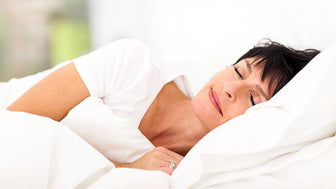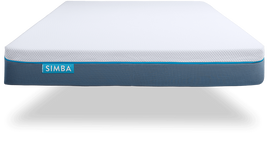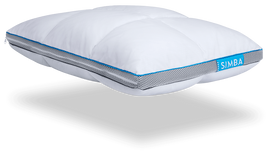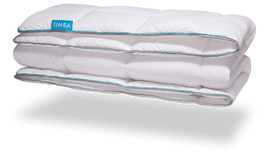We all need sleep - but the amount can vary depending on how many miles we have on the clock. Parents of new-born babies can usually be overwhelmed by the frequent night waking’s, while parents (or carers) of teenagers may get frustrated by their seemingly ‘lazy’ teen, who stays up late and needs to sleep in a lot. However, people aged between 13-18 years officially need more sleep than adults during this life-changing phase. You might wonder, how much sleep do I need by age? Is there a set number of hours to aim for per age group? Indeed, there is. Here’s your handy guide.
HOW MUCH DEEP SLEEP DO YOU NEED BY AGE?
The amount of sleep we need changes over time. As a general rule, these are the recommendations per age group:
- New-born babies need 14-17 hours per night
- Infants aged 4-11 months need 12-15 hours per night
- Toddlers (1-2 years) need 11-14 hours per night
- Pre-schoolers (2-5 years) need 10-13 hours per night
- School age children (6-12 years) need 9-11 hours per night
- Teenagers (13-18 years) need more sleep than adults, about 8-10 hours per night
- Adults need 7-9 hours per night
- Older people (65+) need 7-8 hours per night
HOW SLEEP NEEDS CHANGE AS WE AGE?
As we age, we can experience various age-related sleep challenges such as:
- Changing sleep patterns
- Finding it harder to fall asleep
- Waking more frequently during the night
- Wanting to go to sleep earlier and waking earlier in the morning
- Sleeping less hours in total
- Lighter sleep
- Interruptions - from pain, discomfort, or a weaker bladder
- Sleep disorders such as insomnia, restless legs and sleep apnea are more common in older people
WHAT ARE THE SECRETS TO BETTER REST FOR OLDER PEOPLE?
As we age, the body produces less growth hormones, and this can reduce the amount of deep sleep in our sleep cycle. Sleep can become fragmented and lighter. As sleep is an integral part of our health and our body’s ability to repair itself, it’s still important to seek out restorative sleep as much as possible, and this can also be found during the day as well as at night.
How to nap like a pro:
- Try and nap earlier in the day, around lunchtime or early afternoon, so there is less conflict with your bedtime
- Keep it short - even 5 minutes can be beneficial. Use the alarm in your phone to set a maximum of up to 45 minutes
- Longer than 45 minutes and it could become a ‘bad’ nap that leaves you feeling groggy
Any sleep tracker apps can help you better understand your sleep cycle, monitor any changes to your sleeping pattern, help you learn about the impact of your lifestyle on your sleep quality, and help create healthier sleep habits.







